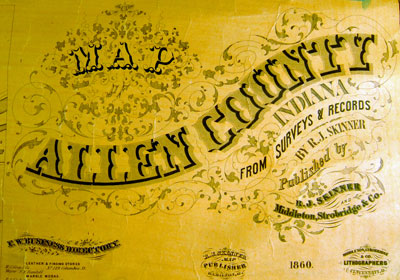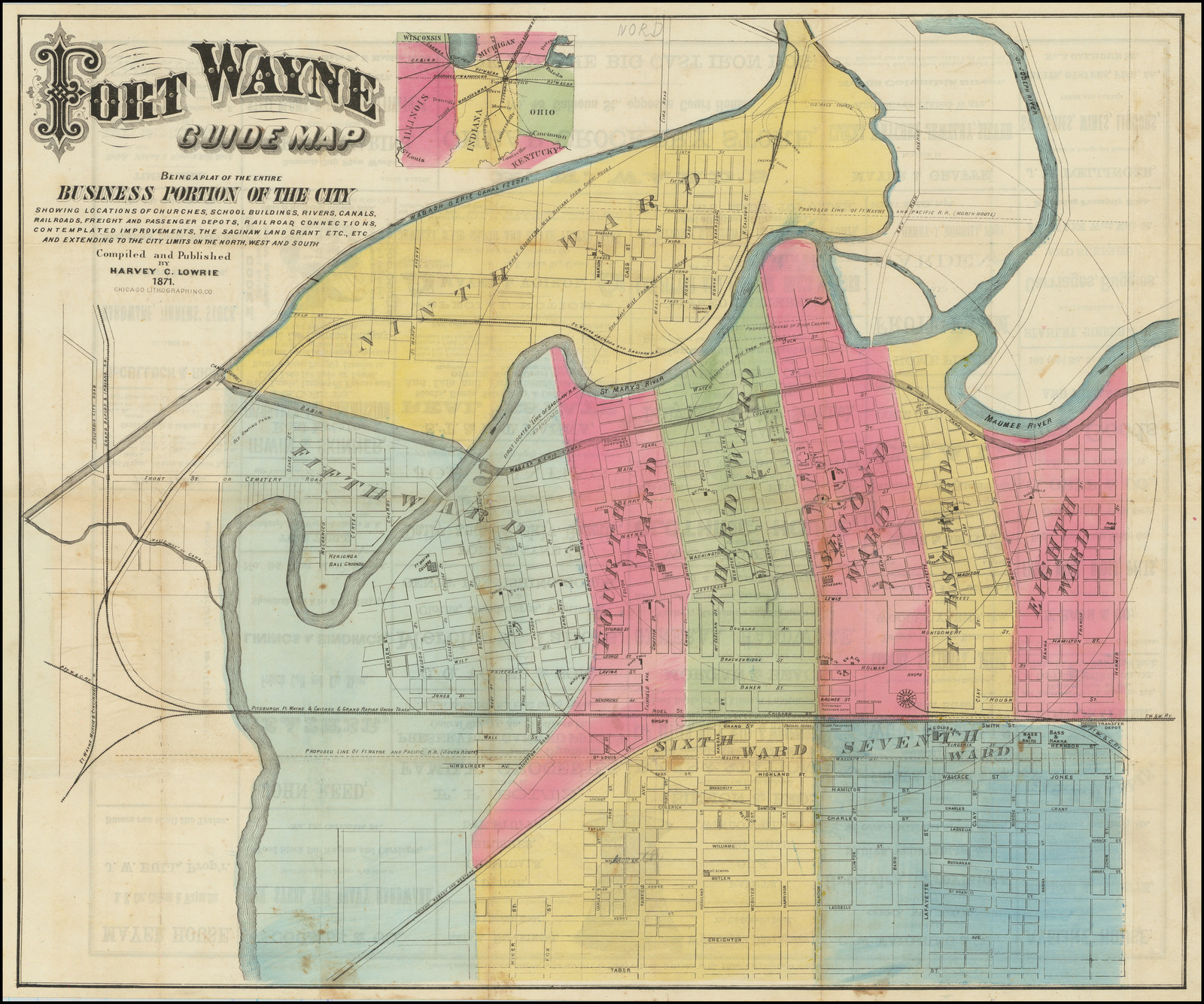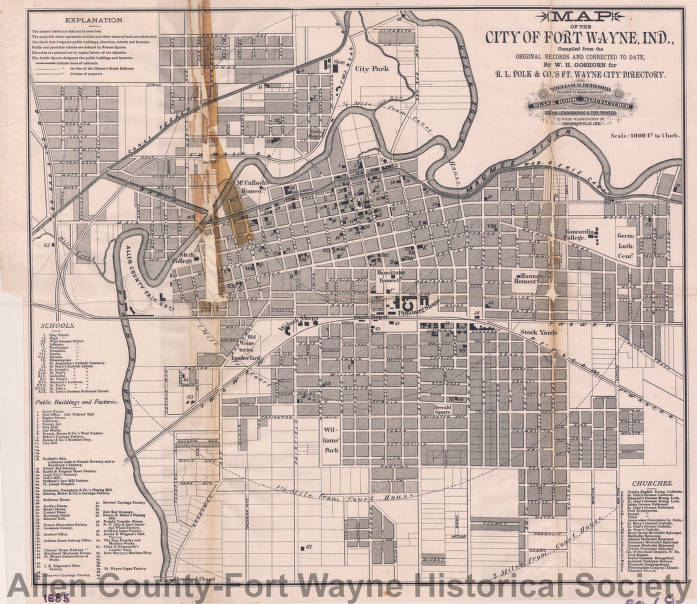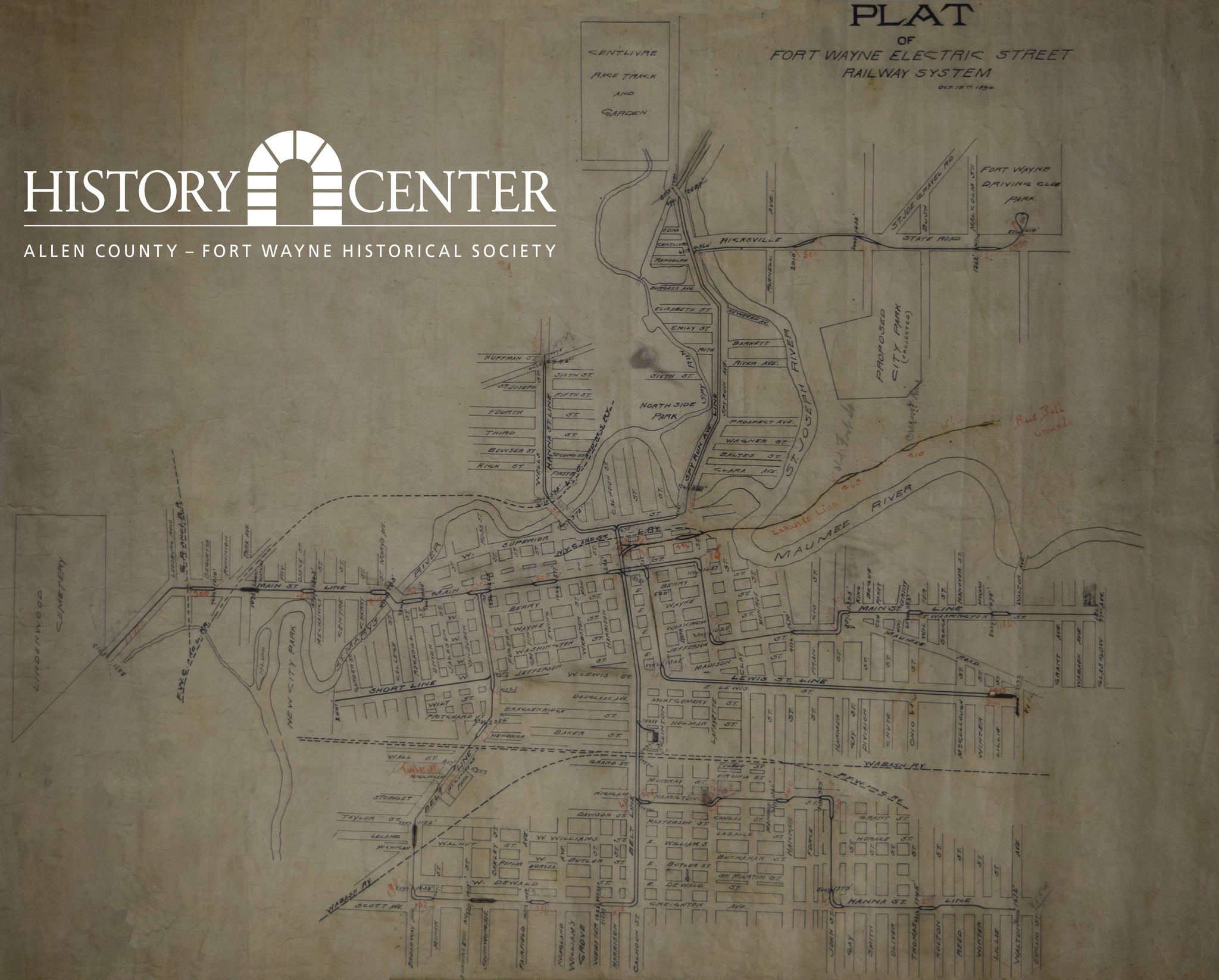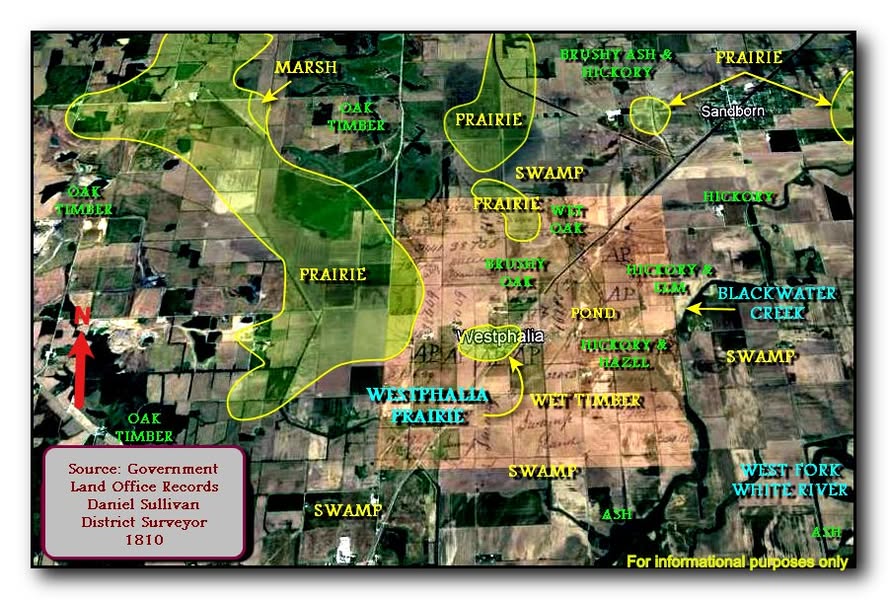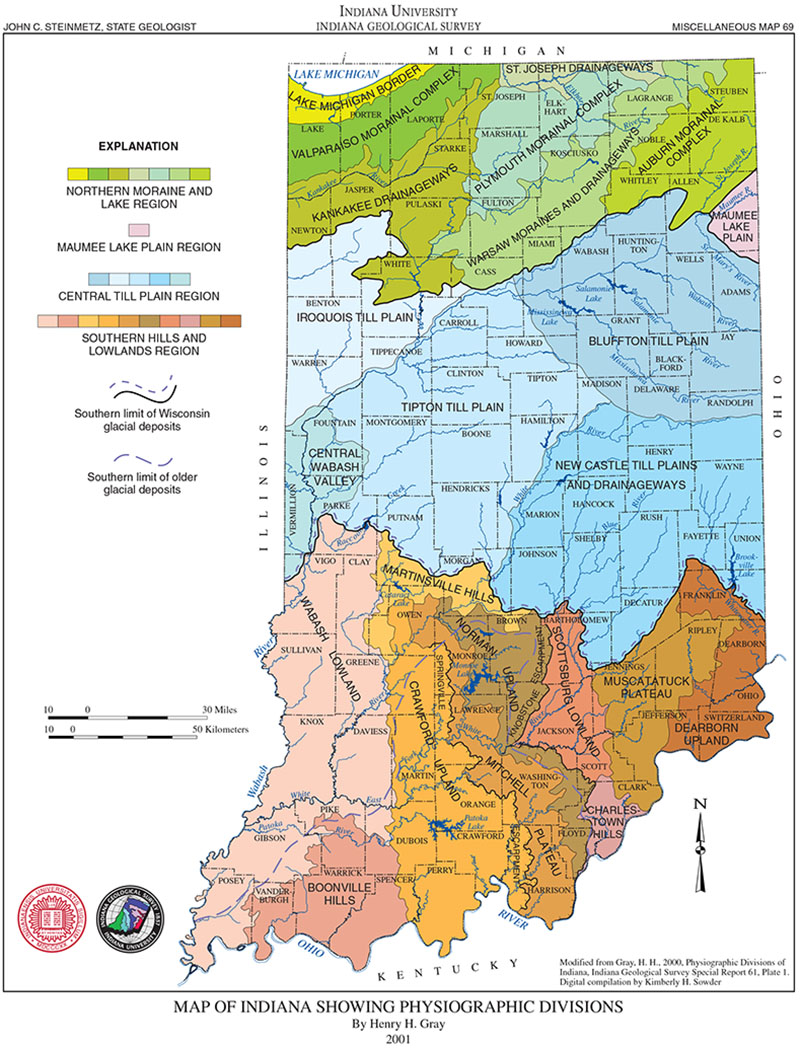Three settlement patterns in early Indiana - South 1790, Middle 1800-1830s, and North 1840s-1850s.
French explorers and fur traders were in Kekionga the Miami Indian village area before Anthony Wayne built Fort Wayne in 1794. The French built two forts beginning in 1722 before George Washington sent troops to eventually build three of the last five forts in what is now Fort Wayne in Allen County, Indiana. Many Pennsylvania German's came into Allen County leading to Fort Wayne becoming a most German town
by the 1890s with many German Swiss Amish still living in rural Allen County.
November 16, 2023 post by the Hancock County Historical Society on Facebook:
Did you know?...
Indiana, unlike other states, was settled in a South to North pattern rather than an East to West. This is an 1817 map of Indiana. One year after the state was granted statehood. You can see that most of the population is firmly established in the south.
There are actually three different cultural areas to the state depending on the people who settled the area and when they arrived.
The southern portion of Indiana was settled first when the Northwest Territory was opened up for settlement in 1790. The Ohio River along the southern border of the state is what encouraged this south to north settlement pattern.
The southern part of Indiana was settled primarily from people from the south...Kentucky, Tennessee, North Carolina and Virginia. This is where you will see a pre-ponderance of Southern Baptists, Methodists and some Quakers. These people tend to eat more traditional southern food...grits, cornbread, bacon, fried chicken and whiskey.
Indiana is known as the most southern of northern states.
The middle of Indiana was settled in the early 1800s up through the early 1830s. Indianapolis would become the state capitol in 1825. While there is some overlap of southern culture in Central Indiana, many of Central Indiana settlers were originally from the Mid-Atlantic states...Pennsylvania, New York, Maryland and neighboring Ohio.
There is a large Quaker population from Pennsylvania in this group. There are many Roman Catholics in this group and Lutherans. These folks tend to prefer the Mid-Atlantic diet, which has some heavy German influence. They prefer hamburger, tenderloin, wurst and sausage. They also like fish if it is available. Scrapple comes from PA. Sugar cream pie is a Quaker invention.
The northern part of Indiana was settled last in the 1840s and 50s. The Potawatomi, the Shawnee and the Miami were some of the last American Indian tribes to leave the state. The Potawatomi were forced out on the Trail of Death.
Also, northern Indiana was swampy, and the area needed to be drained before much settlement could happen.
Indiana's Pioneer time period technically ends around 1850 when we see population leaving the state to go out west during the Gold Rush of 1849. However, the last of northern Indiana was still being settled even then.
The folks who settled northern Indiana are your east coast people. They are from Rhode Island, Massachusetts, Connecticut, and from nearby Wisconsin and Michigan. These people tend to be Anglicans or Episcopalians or Presbyterians. There are many Scandinavian people in this group. They engage in the dairy business, so lots of cheese making. Apple and fruit orchards are more prevalent. Johnny Appleseed, a Massachusettes native, died in Fort Wayne. These people eat a lot of boiled foods. Pot roast is popular as are a variety of beans and lentils. Cider making is popular in northern Indiana.
You can hear the differences in speech too.
The people in southern Indiana have a more southern drawl. Central Indiana is home to the Hoosier dialect, where everyone "warshes" (with an R) their clothes. Northern Indiana has a more clipped speech like those who live in Da Region.
While there can be a mixture of all of these cultures even within the three regions, there still tends to be a preponderance of an "established cultural norm" due to our pioneer settlement pattern. These norms ring true even today...200+ years after the founding of our state.
Brigette Cook Jones
HCHS Board Member and
Past President












